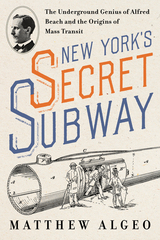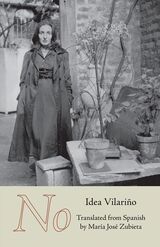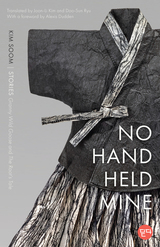3 books about Marullo, Thomas Gaiton
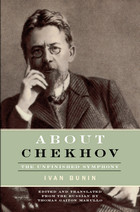
About Chekhov
The Unfinished Symphony
Ivan Bunin
Northwestern University Press, 2007
Seven years after the death of Anton Chekhov, his sister, Maria, wrote to a friend, "You asked for someone who could write a biography of my deceased brother. If you recall, I recommended Iv. Al. Bunin . . . . No one writes better than he; he knew and understood my deceased brother very well; he can go about the endeavor objectively. . . . I repeat, I would very much like this biography to correspond to reality and that it be written by I.A. Bunin."
In About Chekhov Ivan Bunin sought to free the writer from limiting political, social, and aesthetic assessments of his life and work, and to present both in a more genuine, insightful, and personal way. Editor and translator Thomas Gaiton Marullo subtitles About Chekhov "The Unfinished Symphony," because although Bunin did not complete the work before his death in 1953, he nonetheless fashioned his memoir as a moving orchestral work on the writers' existence and art. . . . "Even in its unfinished state, About Chekhov stands not only as a stirring testament of one writer's respect and affection for another, but also as a living memorial to two highly creative artists." Bunin draws on his intimate knowledge of Chekhov to depict the writer at work, in love, and in relation with such writers as Tolstoy and Gorky. Through anecdotes and observations, spirited exchanges and reflections, this memoir draws a unique portrait that plumbs the depths and complexities of two of Russia's greatest writers.
In About Chekhov Ivan Bunin sought to free the writer from limiting political, social, and aesthetic assessments of his life and work, and to present both in a more genuine, insightful, and personal way. Editor and translator Thomas Gaiton Marullo subtitles About Chekhov "The Unfinished Symphony," because although Bunin did not complete the work before his death in 1953, he nonetheless fashioned his memoir as a moving orchestral work on the writers' existence and art. . . . "Even in its unfinished state, About Chekhov stands not only as a stirring testament of one writer's respect and affection for another, but also as a living memorial to two highly creative artists." Bunin draws on his intimate knowledge of Chekhov to depict the writer at work, in love, and in relation with such writers as Tolstoy and Gorky. Through anecdotes and observations, spirited exchanges and reflections, this memoir draws a unique portrait that plumbs the depths and complexities of two of Russia's greatest writers.
[more]
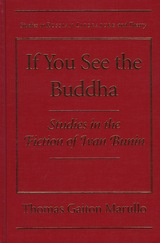
If You See the Buddha
Studies in the Fiction of Ivan Bunin
Thomas Gaiton Marullo
Northwestern University Press, 1999
In a 1994 American Scholar article, Andrew Wachtel wrote of Ivan Bunin: "[He] is undoubtedly the greatest Russian writer whom no one reads." With the collapse of communism, however, Bunin's works are undergoing a revival in both Russia and the West. As enthusiastic as readers and publishers have been, scholarship has not kept pace with this "rediscovery," in part due to the many contradictions in Bunin's writing, in part because much past criticism has been used to advanced the critic's own view of what they love or hate about "modern" life.
In If You See the Buddha, Thomas Gaiton Marullo begins addressing the lack of scholarship by establishing that Bunin was a thoroughly modern writer whose images and ideas were rooted more in the twentieth century than in the nineteenth. But beyond that point, Marullo states that, of all the systems of belief that Bunin adopted and adapted throughout his career, it was his interest in Buddhism that best elucidates the dynamics of his writing. Key Buddhistic concepts figured prominently in Bunin's work. These ideas enabled him to make sense of his world and serves as the catalyst for an ars poetica that tempered his philosophical and aesthetic restiveness and contributed a sense of timelessness to work from both his prerevolutionary and émigré periods.
In If You See the Buddha, Thomas Gaiton Marullo begins addressing the lack of scholarship by establishing that Bunin was a thoroughly modern writer whose images and ideas were rooted more in the twentieth century than in the nineteenth. But beyond that point, Marullo states that, of all the systems of belief that Bunin adopted and adapted throughout his career, it was his interest in Buddhism that best elucidates the dynamics of his writing. Key Buddhistic concepts figured prominently in Bunin's work. These ideas enabled him to make sense of his world and serves as the catalyst for an ars poetica that tempered his philosophical and aesthetic restiveness and contributed a sense of timelessness to work from both his prerevolutionary and émigré periods.
[more]
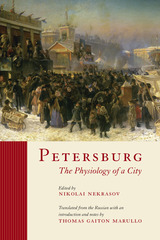
Petersburg
The Physiology of a City
Thomas Gaiton Marullo
Northwestern University Press, 2009
This landmark collection of short works forms a vivid documentary of life in midnineteenth-century St. Petersburg. Editor Nikolai Nekrasov was the most influential literary entrepreneur of the day, and he assembled works ranging from ethnography to fiction to literary criticism, all written by leading authors and thinkers of the time. The book he edited represents many important strands in Russian culture and history, including the development of Russian prose and the rise of the intelligentsia. A vital political document as well, Petersburg is a record of—and served as a spur to—the changes in Russian society that culminated in the 1917 revolution. This first-ever English edition brings its storied and studied illumination to a new audience, providing a key to understanding the place that St. Petersburg holds in Russia’s identity.
[more]
READERS
Browse our collection.
PUBLISHERS
See BiblioVault's publisher services.
STUDENT SERVICES
Files for college accessibility offices.
UChicago Accessibility Resources
home | accessibility | search | about | contact us
BiblioVault ® 2001 - 2025
The University of Chicago Press


